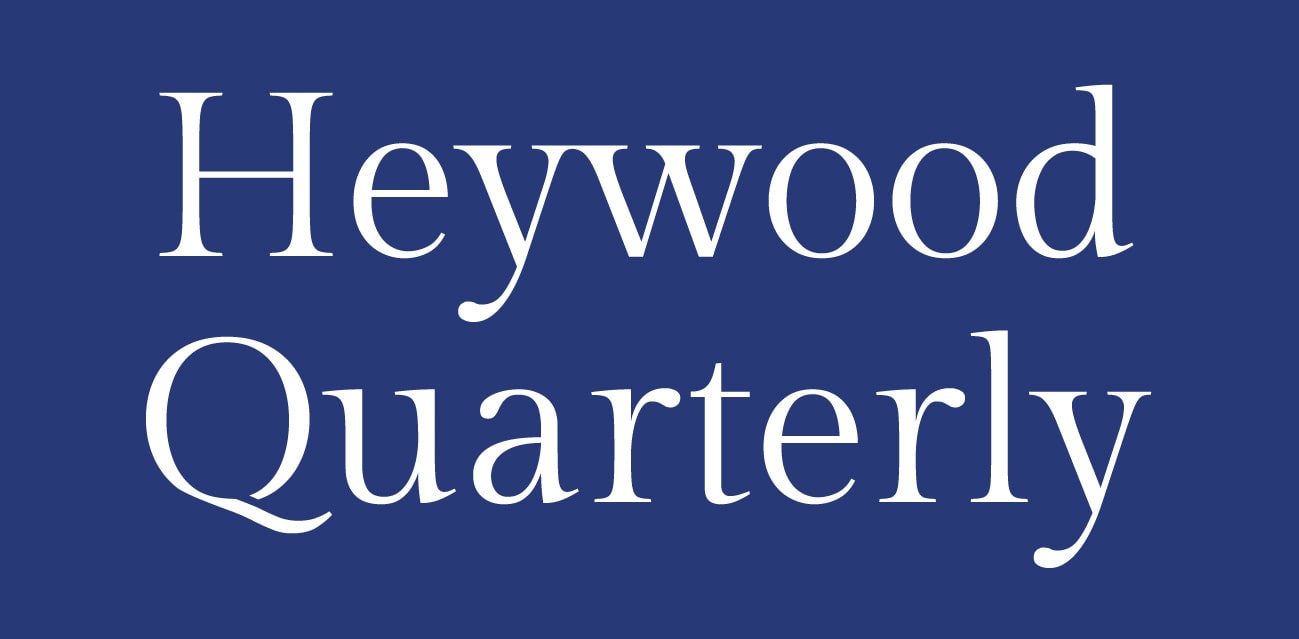Tamara Finkelstein, Head of the Government Policy Profession, asks whether it’s time for Civil Service generalists to become part of a profession
Is it time to consider the end of the Civil Service generalist? My own career experience and leadership of the Policy Profession has prompted me to ask some fundamental questions.
I started as an engineer studying the subject at university, sponsored by a defence engineering company. As part of my training, I attended a three-month engineering practices course to learn technical drawing, milling, grinding and arc welding. My respect for welders was without bounds as I turned my beautifully made pieces of metal into what looked like a slice of burnt toast.
At the end of the course, we had to complete a project. My fellow students and apprentices made car alarms which warn that the lights have been left on (before these were standard). I built a machine to count votes by the proportional representation system of Single Transferable Vote. My interest in the world of politics and government was drawing me away from a career in engineering.
My family background, as the first generation born in this country, pushed me towards finding another established profession. Becoming an economist ticked that box and finding a Government Economic Service scheme to fund me satisfied my interest in politics and government, and the need for financial security. I started my civil service career as a Treasury economist.
For my first couple of jobs, I would do the economics and analysis and write it up for a Fast Stream generalist to use at the ministerial meeting. Thanks to Terry Burns and Gus O’Donnell, this started to change when they (as Treasury Permanent Secretary and Chief Economist respectively) took the view that, given this was the Treasury, maybe the economists could advise the ministers directly. I hugely benefited from this change as I added some generalist skills to my toolbox, in particular understanding the parliamentary, government and political system. But over my first decade in government, I inadvertently lost my professional economist skills because I was oblivious to the need to update them, or to manage my career to keep economics as an anchor. I had become a generalist.
This personal experience of casually losing my professional skills has fuelled my interest in how we transform skills and capabilities in the Civil Service, and how we professionalise our craft through providing high standards of structured learning for all civil servants.
This article makes the case that skills sometimes termed ‘generalist’, while invaluable, must be learned, practised and developed as part of a profession. I suggest that the Policy Profession, which is now my home and which I lead, can be the professional home for many of those currently identifying as generalists. And as I will explain, the Policy Profession has an ambitious plan to build individual and organisational capability in the Civil Service over the next decade. The desired and essential outcome is to improve the lives of UK citizens.
So what is a generalist? A generalist usually refers to someone with a wide range of skills and knowledge across a range of subject areas. In the Civil Service, a generalist tends to have built skills in democracy – understanding the parliamentary, government and political system, often applying these skills across a range of policy areas, moving frequently from role to role and department to department. The self-styled generalist will be valued for their judgement and for an ability to be a fixer in a complex political and policy context. There is great value in these skills. Being able to apply them at pace to different problems, understanding what ministers need and navigating the system to deliver that, and setting up effective governance arrangements.
In medicine and probably some other professions, there is a strong and powerful argument that there are not enough generalists and too many specialists. Without the generalist approach there is a danger that no one looks at the whole person they are treating. In the world of policy making, where all interesting problems are systems problems, there is a strong argument for the skills that enable you to look at the whole problem and to build a multi-disciplinary team to solve it.
But there are downsides to generalism:
- Lack of structured learning: Generalist skills are still skills, and they require definition and must be learned and practised. Over the three decades I have been in the Civil Service, formal learning has fallen away, and while ‘on the job’ learning is helpful, it is not enough on its own.
- Rapid movement between jobs: Moving between different jobs rapidly is regarded as the privilege of the generalist. In the early stages of a career, this mobility can be used to build knowledge and skills if done with care and structured learning. At more senior levels, though, it can be difficult to develop knowledge and to make and sustain relationships with experts.
- Limited diversity: Generalists are sometimes regarded as practising a dark art, open to those who are more confident of managing without the framework of other professions, the preserve of those who just seem to know how to do it. This leads to a lack of diversity in background and in thought.
So my proposition is that while generalist skills are important, they need to be practised as part of a profession that provides a framework for learning, transparent career development and preferably transferable qualifications.
For that the Civil Service needs a strong policy profession.
The Policy Profession in government has made huge strides since it was established over a decade ago. We have established high quality Masters and Post Graduate diploma courses, in partnership with world class universities, alongside an excellent policy apprenticeship. We have also created a range of other learning opportunities including ‘leaders teaching leaders’ making use of senior experience in policy making, ‘reunion’ style sessions to learn and share lessons, and the annual Policy Festival with accomplished panels, bite-sized learning, mini coaching sessions and the like.
The Policy Profession Standards with its three pillars – strategy, democracy and delivery – set out the skills needed to be a policy professional at different levels (developing, practitioner and expert), and there is related guidance on career pathways. The skills often considered the preserve of the generalist are threaded through the framework. Many of these learning offers are open and relevant for other professions seeking to build skills in policy making. Being a policy maker is not the preserve of policy professionals.
That said, the Policy Profession needs to take the next step from being simply a community of practice – a voluntary gathering of those with an interest in policy making – to a profession with requirements to meet standards and complete continuous professional development. Recruitment to Civil Service roles must require evidence that these standards have been met.
So over the next decade we will deliver a plan that puts ‘building capability’ at the heart of the profession.
The good news is that we have made a start:
- The Fast Stream no longer has a ‘generalist’ brand. Applicants choose a profession to major in when they apply, including government policy or operational delivery. This does not prevent them moving across professions and there is considerable shared learning, but it creates the expectation of a career-long commitment to professional capability building.
- We are developing a common policy profession induction programme and Policy 101, and we will expect everyone in the profession to complete these.
- We are piloting an approach to Continuous Professional Development (CPD) with senior civil servants in which they commit to a personal development plan with specified learning, both formal and on the job. The annual policy festival run by the Profession, for example, has sessions that will provide CPD credits.
- We are testing a tool to help departments to self-assess (with external peer scrutiny) their effectiveness in policy development. Based on this, departments can put in place an improvement plan – for example to raise data literacy.
Further initiatives underway include:
- Exploring what it means to be a qualified policy professional, how we will test that standards have been met and how we might make this qualification available to others in the economy working on policy. An external advisory panel is helping with this work, including experts from the accountancy and HR professions.
- Supporting sub-professions and communities that will come under the umbrella of the Policy Profession. For example, we are building a cohort of colleagues with deep knowledge of climate and environment who might move jobs and departments, thereby acquiring generalist skills while deepening their subject expertise and external relationships. We are also building a community of strategy experts and developing our capability to do long term strategic thinking.
- Looking at how we train policy professionals to be experts in building and leading multi-disciplinary teams. When we appoint a consultant (at great expense), one of their key skills is to appraise an issue and build a team of scientists, analysts, policy, operational delivery and other professionals to solve the problem. We should build that capability internally.
This is an ambitious plan, and we are only at the start. The policy skills of the generalist remain valuable, but we will make those skills more transparent and make it clearer how they can and should be built within the framework of the Policy Profession. We will help sub-professions (like climate and environment) build their policy skills while deepening their specialist knowledge and relationships – rather than weakening their specialisms as I did earlier in my career. Through all of this we will make the Policy Profession more accessible, and thus more diverse. And as we establish a floor of basic capabilities, and raise the ceiling with post graduate accredited learning, we will equip our colleagues for the policy challenges ahead.
I would like to see a ‘One Big Sign On’, requiring every civil servant to sign up to a profession or be part of a function that provides a framework of learning. An amnesty for the generalist! We should not shut down the ability to move between professions and functions, but that should not just be the preserve of the ‘generalist’. Transparent skills frameworks will support that mobility by giving people demonstrated expertise that they can take with them when they move.
Our ambition is to deliver better outcomes for citizens. To do that we all have to be truly excellent at the work we do, and that means transforming our approach to what it means to be professional.
In my Civil Service career I have come full circle. I now lead a department where successful policy making depends on working hand in hand with extraordinary scientists, grappling with systems problems where the engineers provide the insight we need, and using new approaches to data to deliver those policies effectively.
Maybe that voting machine that I developed was an early signal that progress lies in combining specialist and policy skills across disciplines.
Tamara Finkelstein is Permanent Secretary, Department for Environment, Food and Rural Affairs, and Head of the Government Policy Profession
To find out more about the policy profession go to www.policyprofession.civilservice.gov.uk





